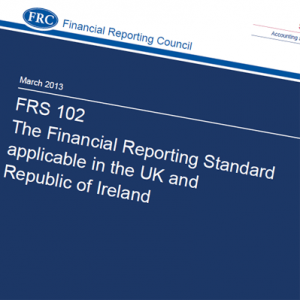Inheritance Tax: Should You Be Worried?
It seems like inheritance tax is the tax of the moment. The potential fiscal responsibility du jour.
The media have been making a big deal about Tony Benn’s tax planning to minimise the amount of inheritance tax his children had to pay, with the Daily Mail claiming that it stands as proof that even the Left hate the tax. It was, however, accomplished by a move that most accountants would be remiss not to advise.
That said, tax loopholes and the mansion tax are receiving pretty good coverage. There’s even the story from Hungary about a proposed internet traffic tax.
But inheritance tax is a more pressing issue, in so much as it’s beginning to affect more and more people. David Cameron has said that “we all want to see a system where it is only the very rich that pay inheritance tax, and not hard working people.” And George Osborne, when he was Shadow Chancellor, promised to raise the thresholds to £1m, so that fewer people would end up with steep 40pc inheritance tax bills.
However, the party’s main priority when it comes to tax policy thus far has been pension reform and cutting income tax. Inheritance tax thresholds are set to remain the same until 2018 (meaning a decade without any change), a move that was announced by the Coalition back in 2013 to help elderly people cope with healthcare costs.
If you are single or divorced, you can currently inherit £325,00 before you need to pay inheritance tax (this threshold is known as the “nil-rate band”); if you are married the allowance goes up to £650,000. Things are slightly different where widowers are concerned: they can inherit up to £650,000 in the nil-rate band depending on how much of the allowance has been used before their partner’s death.
All assets inherited above these thresholds will be taxed at 40 per cent. For example, as a single person, if you were to inherit an estate worth £500,000, only £175,000 of that amount would be subject to inheritance tax. That’s still a considerable sum of £70,000.
There have been promises in the past from previous chancellors to increase inheritance tax thresholds to £350,000 (that would mean a saving of £10,000 in the aforementioned example) but ever since the financial crisis of 2008 the limits have remained the same. Only UKIP has promised to get rid of the tax altogether.
The crux of the issue is that we’re in the middle of house price bubble, meaning that those who inherit estates in the next few years (especially in London) are more likely to fall into the 40 per cent tax band. Whereas previously they might have paid nothing. The Office of Budget Responsibility have made some startling predictions: the number of estates affected will likely double by 2018/19. In 2013/14, more than 26,000 deaths lead to inheritance tax charges.
If house prices continue to rise as they are doing (and there’s not much to suggest otherwise), inheritance tax will be a matter for more than just the very rich. More and more middle-class families are going to be affected, given that the average house price in London is now £514,000, just £136,000 below the threshold for married couples.
If you think you need advice on inheritance, speak to one of our tax accountants today. This is the first step in finding out whether you will be affected by current legislation and seeing how you can plan to mitigate any effects by planning for Inheritance Tax.




